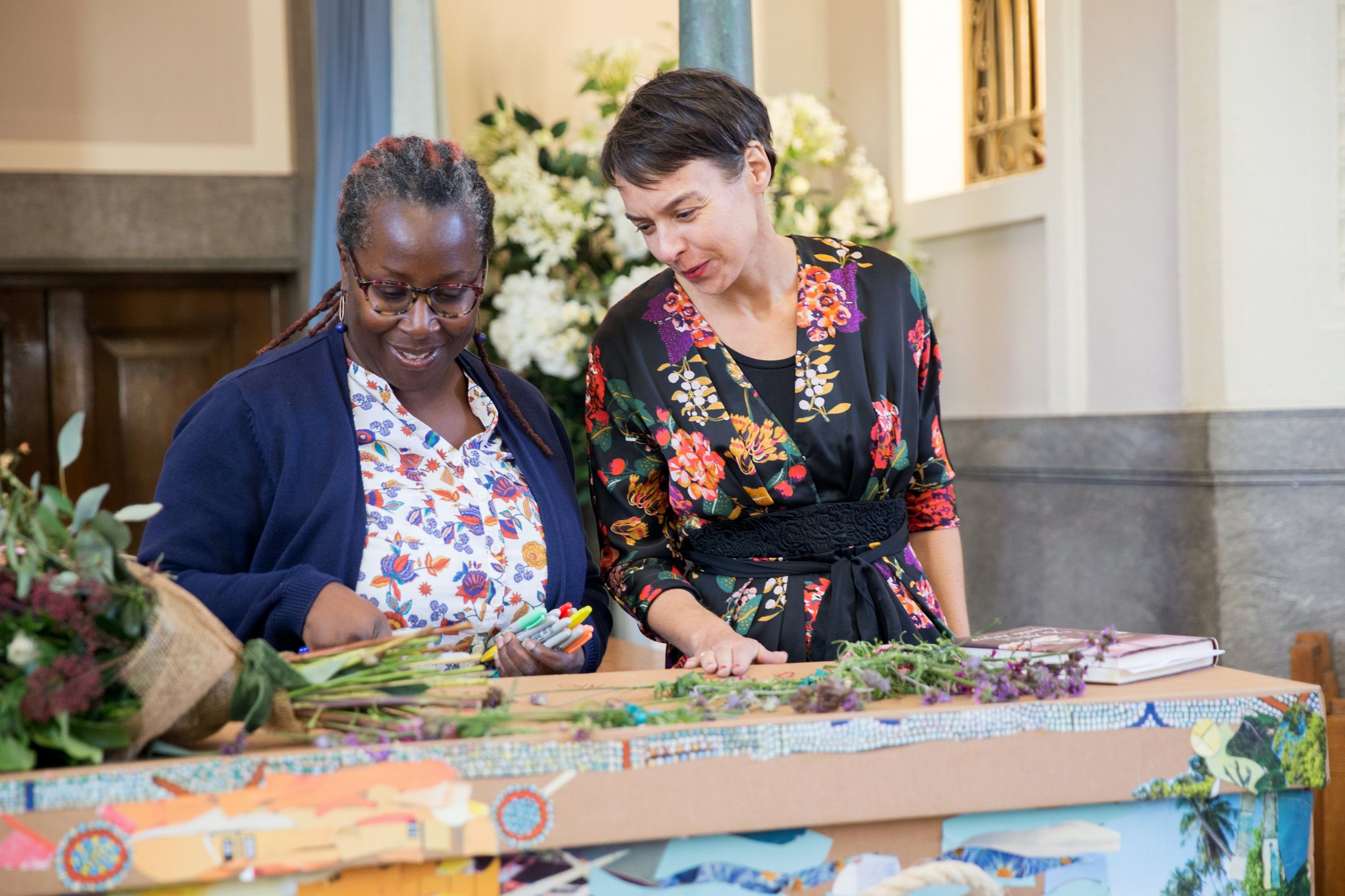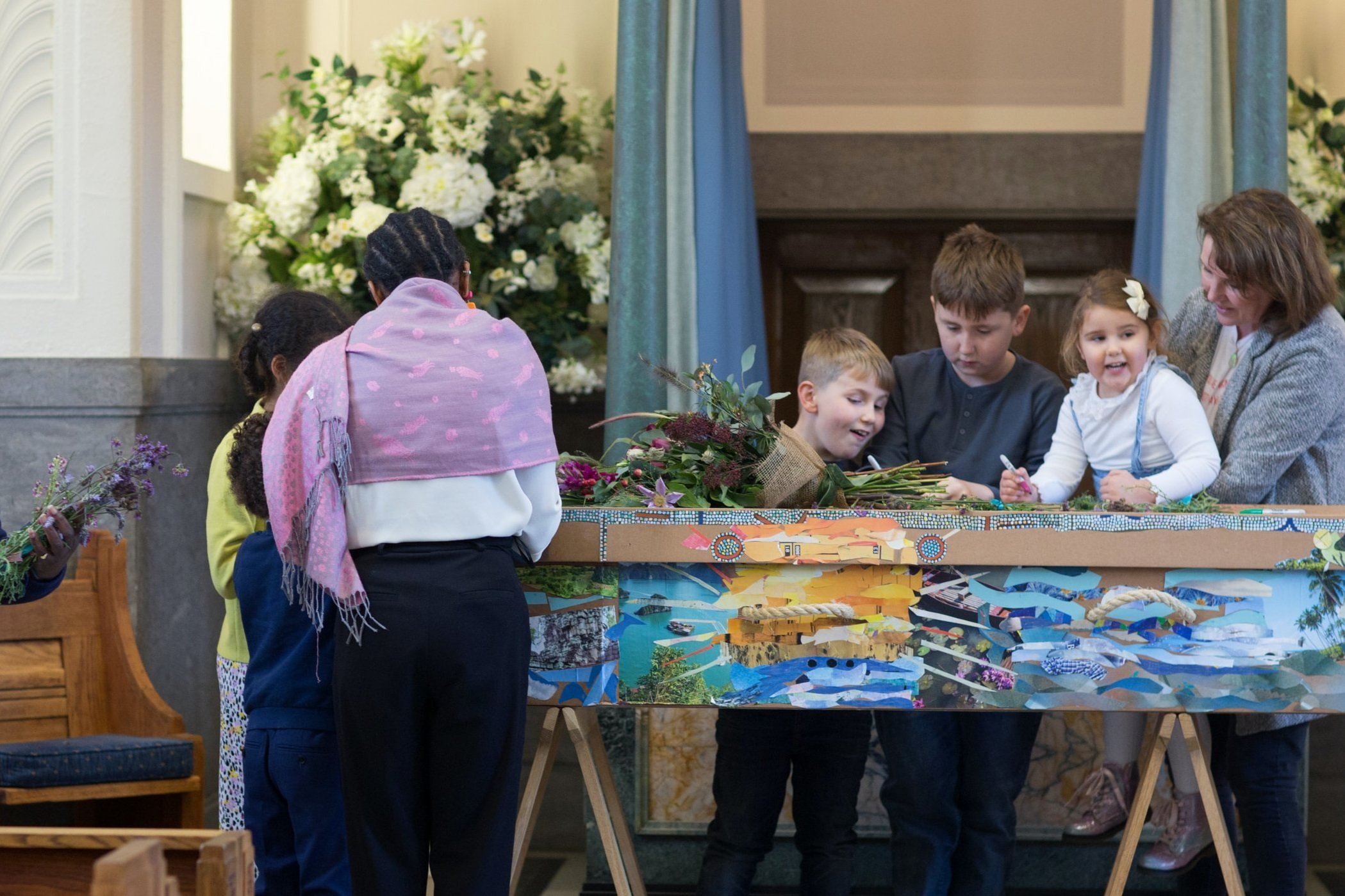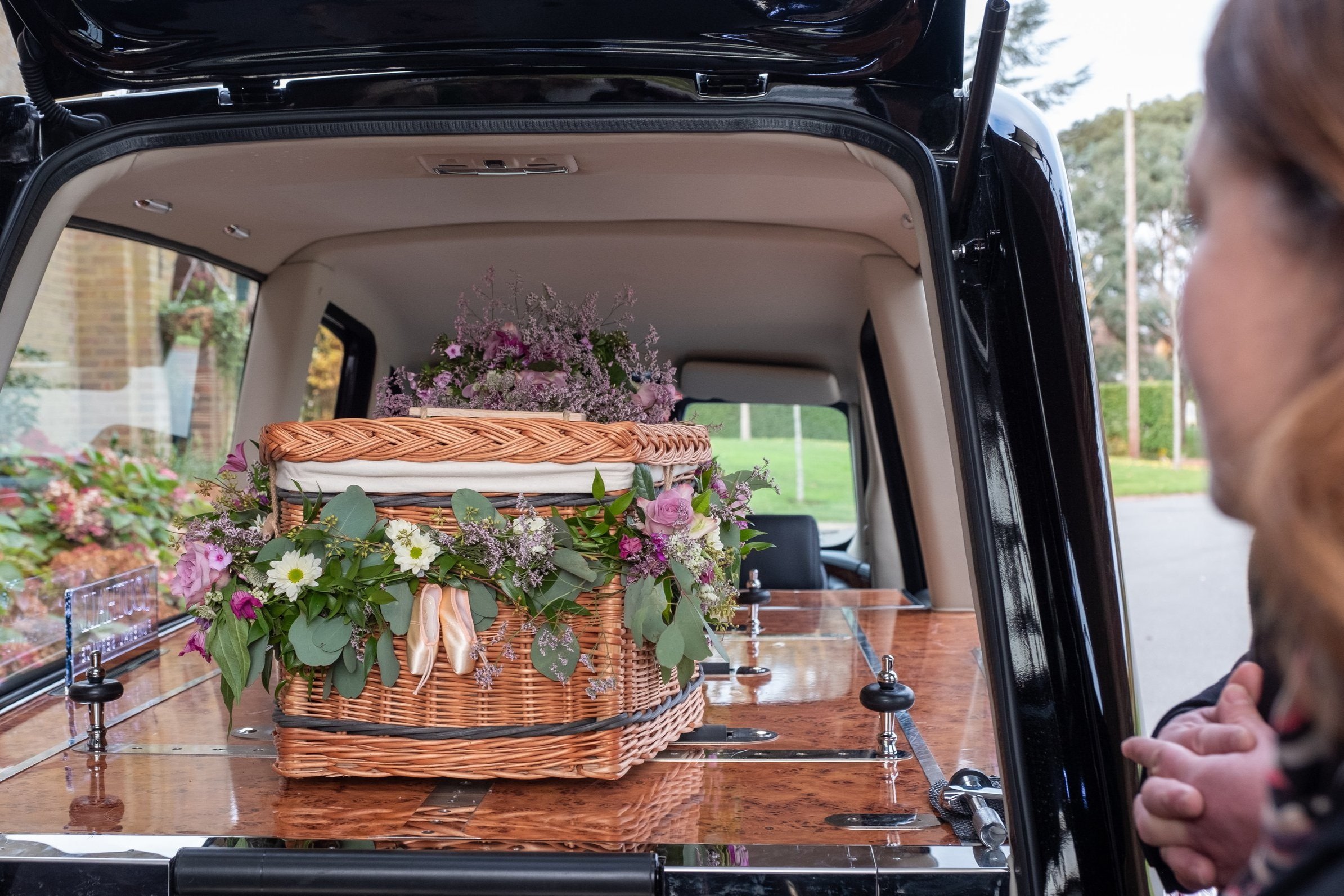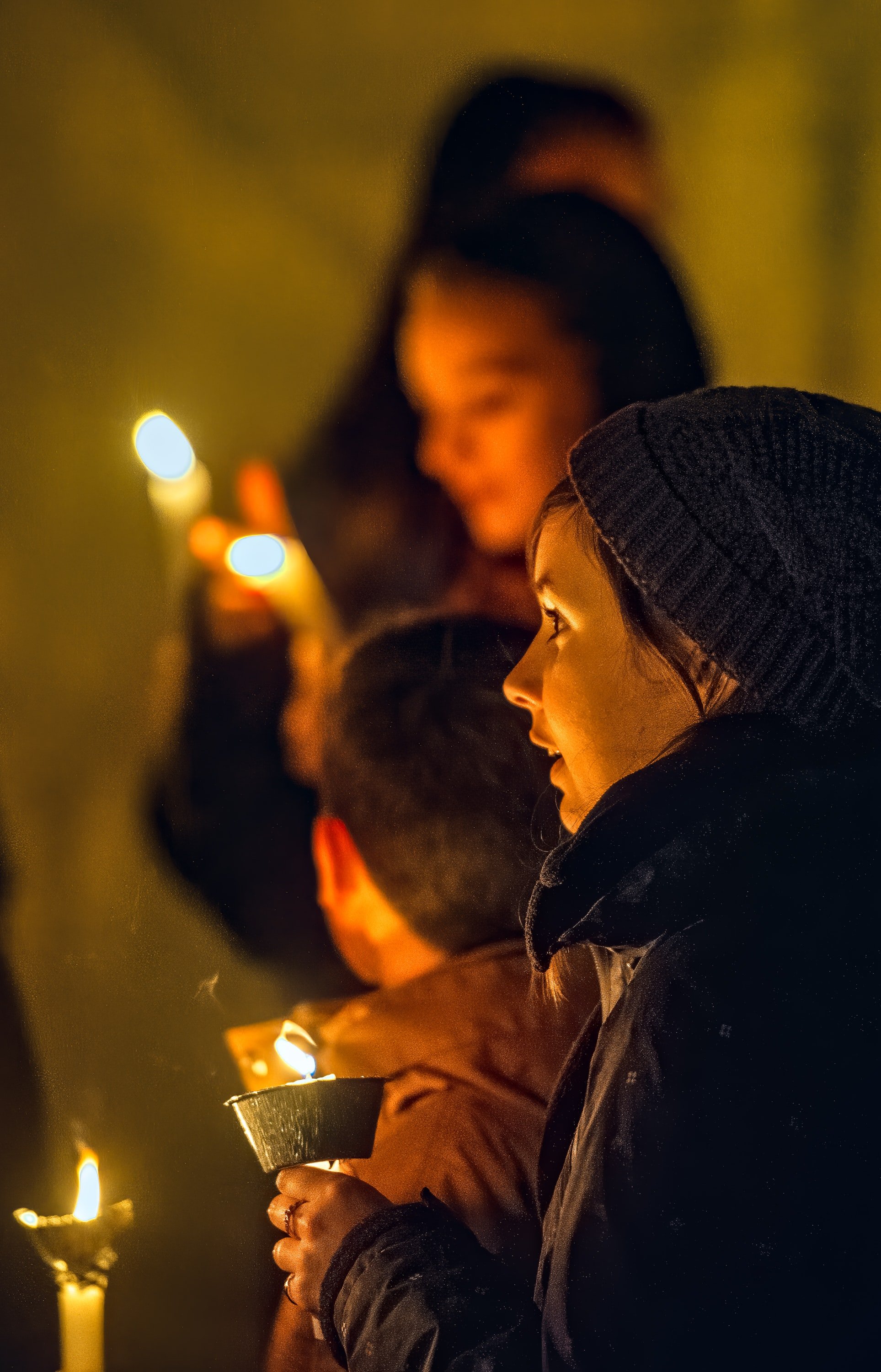If you’d like an End-of-Life Ceremony that uniquely honours your loved one & your loss, then reach out for a free, no-obligation meeting today - and together we’ll explore, with sensitivity, the creation of a Ceremony that allows you to more deeply acknowledge the reality of your loved one’s death and the life transition you are experiencing, as well as supporting you to begin to embrace the pain of the loss as you move through your grief.
End-of-life ceremonies include funerals, memorials, and celebrations of life, as well as committals at graveside or elsewhere.
Why have an end-of-life ceremony?
Co-creating and experiencing a personalized tribute that honours the life of a loved one can be an important first step in the grieving and healing process.
Having a ceremony of this kind is an opportunity to honour the uniqueness of the individual, give voice to your memories, and feel supported by community both through their presence and their sharing of what your loved one meant to them.
It’s also an opportunity to more deeply acknowledge the reality of the death and the life transition you are experiencing, and to begin to embrace the pain of the loss as you move through your grief.
What is my role in helping you create an end-of-life ceremony experience?
I would be honoured to help you commemorate the life of a loved one through the creation of a ceremony that reflects their uniqueness.
As a Celebrant, as needed, I can be a facilitator, an attentive and sensitive interviewer, a creative writer, a public speaker, and a ceremonial leader.
Initially, I lead you through a family meeting to learn about your wishes for the ceremony, to share about your loved one, and to allow you to walk down memory lane together. Our conversation includes a series of questions I guide you through.
The ceremony could include stories, music, readings, poems, and more. From these elements, we would create an appropriate form of tribute.
I assemble your answers and come back to you with an overview of the ceremony for your approval and any additions you may wish to make.
I organize any speakers, talking to each ahead of time to make sure the stories do not overlap and to give a sense of continuity and framework to the service.
I also then officiate at the event as needed.
For end-of-life ceremonies, after an initial phone call, I give you a quote based on your needs.
If we choose to work together, our planning meeting usually takes 1-2 hours. Depending on if you and your family want to go through that process together, the meeting might then take up to 3 hours.
*Due to health concerns or simply geographical challenges, we can adapt how we work together to create a ceremony.
Our planning conversations can be by telephone or internet.
We can plan a ceremony done virtually/with the help of the internet.
Elements that we can include in a virtual ceremony might include:
sharing your stories and wishes
praying together (if this is a part of your traditions)
lighting candles
viewing photos
listening to meaningful music
toasting
and more!
Reach out to explore these and more ideas!
•••
“Carrie, Thank you so much for guiding our family, from beginning to end, and creating such a beautiful and personal ceremony to celebrate the life of our loved one. Everyone I spoke with felt the celebration reflected her perfectly. I am so grateful that you gave our family so many opportunities to share stories and memories.
Sending you the best.”
~ Bob and Paula F.






